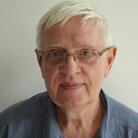Invited Speaker

Tadeusz Czachorski
Professor, Silesian University of Technology, PolandSpeech Title: Dynamics of Software Defined Networks investigated via diffusion approximation queueing models
Abstract: Network structures based on static switches are not well suited for the needs of high performance, energy efficiency and reliability in dynamically changing environments, and are not flexible enough to maintain Quality of Service (QoS) for increasingly complex networks.
This may be changed by Software Defined Networks which use intelligent programmable controllers being aware of the overall state of nodes and links,
and able to dynamically manage the network and adapt it to new conditions.
They provide flexible and scalable routing by separating the control and data planes for traffic engineering, link failure recovery, load balancing and security issues.
Since standard queueing models are not well adapted to analyse the transient regime, we propose a tractable diffusion approximation for both the transient and steady-state behaviour. The model may represent any network topology transmitting time-dependent flows with routing changes. It computes queue length and delay distributions at each nework node and along complete paths between senders and receivers.
For realistic router parameters, we show that transients states occupy a large fraction of time. Thus network optimisation conducted with SDN controllers should include the effect of time-dependent behaviours. Detailed numerical examples are presented.
Biography: Tadeusz Czachorski received M.Sc., Ph.D., D.Sc. degrees in informatics respectively in 1972, 1979, 1988, and professor title in 1999. Currently he is a professor at the Silesian University of Technology (Division of Computer Systems Theory and Design) and the director of the Institute of Theoretical and Applied Informatics of Polish Academy of Sciences, IITiS PAN, Gliwice. He spent more than five years at several French universities and research institutes (IRISA Rennes, University of Versailles, ISEM Orsay Paris-Sud, Paris-Nord, National Institute of Telecommunication) and still maintains scientific cooperation with these centres. He participated in Next Generation Internet European project concerning such issues as multiservice-multimedia, mobility, services convergence, quality of service and variable connectivity, where he was co-responsible for the work package concerning analytical, numerical and simulation methods to model performance of the Internet. He took part in Future Internet Engineering project and currently his institute coordinates a European project H2020 on safe and secure Internet of Things. He is a member of programme committees of some periodic international and national conferences, e.g. Heterogeneous Networks HET-NETS, European Workshop on Performance Engineering EPEW, Polish Teletraffic Symposium, Computer Networks, Internet in the Information Society. In 1990 - 2007 he was scientific secretary of the Committee of Informatics of Polish Academy of Sciences, 2007 - 2011 vice-president of this committee, currently member of presidium and head of the section of computer networks and distributed systems of the committee. Chair of IFIP Technical Committee TC5 "Information Technology and Applications" and member of IFIP General Assembly. His scientific interests include mathematical methods and software related to modelling and performance evaluation of wide area computer networks, especially the Internet. The methods include Markov chains, diffusion approximation and fluid flow approximation. They are used to study quality of service, traffic control mechanisms and related problems.